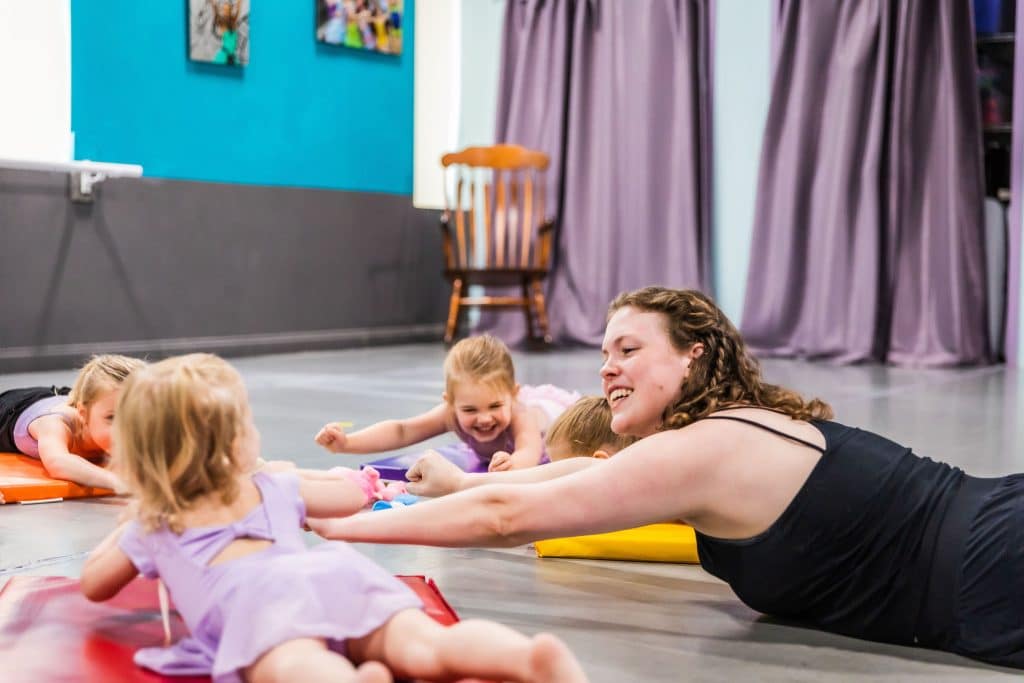
“They are only three . . . If they like dance, I'll find a better school.”
From the moment a child takes their first wobbly steps, they are embarking on a lifelong journey of growth and development. It's a journey filled with opportunities to learn, explore, and discover the world around them. And one of the most enriching paths for young children is through dance classes.
In this article, we delve into the importance of providing high-quality dance training for children under the age of 5. It's not just about teaching them to twirl or leap gracefully; it's about nurturing their physical, cognitive, and emotional development in ways that will benefit them throughout their lives.
1. Physical Development: Building Strong Foundations
Quality dance training is like building a strong foundation for a house. It instills valuable physical attributes such as strength, flexibility, balance, and coordination in children from an early age. These foundational skills are crucial for their overall physical well-being and when not done with care can lead to lasting long term injuries.
2. Cognitive Development: Learning More Than Just Moves
Dance is more than just fancy footwork. It involves memorizing steps, patterns, and rhythms, which enhances cognitive development. This includes improvements in memory, problem-solving abilities, and spatial awareness.
3. Social and Emotional Growth: The Power of Togetherness
Dancing in a group setting teaches children about teamwork, cooperation, and social interaction. It also encourages self-expression and emotional intelligence as they communicate and convey feelings through movement.
4. Creativity and Self-Expression: Discovering the Artist Within
Dance is an artistic medium that allows children to explore their creativity and self-expression in a structured and meaningful way. It provides them with a canvas to express themselves and build confidence in their abilities.
5. Discipline and Focus: Essential Life Skills
Dance requires discipline and concentration. Young children can greatly benefit from early exposure to structured activities that teach them how to follow instructions and stay focused, skills that prove valuable in various aspects of life.
6. Healthy Habits: A Lifelong Gift
Participating in dance from an early age can instill a love for physical activity and an active lifestyle, which, in turn, can lead to long-term health benefits.
7. Cultural and Artistic Appreciation: Opening Doors to Diversity
Dance introduces children to different styles and cultures, fostering an appreciation for diversity and the arts. It's a gateway to understanding the rich tapestry of our world.
8. Foundation for Future Skills: Preparing for the Future
Early exposure to dance can lay the groundwork for future pursuits in dance or other artistic endeavors. It can also improve physical fitness, setting children on a path to a healthier future.
9. Building Confidence and Self-Esteem: A Dance of Self-Discovery
Mastering dance steps and performing in front of others can significantly boost a child's self-confidence and self-esteem, providing them with the belief that they can overcome challenges.
10. Life-Long Enjoyment: A Gift That Keeps Giving
Ultimately, quality dance training instills a lifelong love for dance. It's an activity that can be enjoyed throughout one's life, promoting physical fitness and mental well-being.
At Atlanta Dance Central, we spent hundreds of hours designing a curriculum that is developmentally age appropriate. We nurture not only the dancer, but the child too. Dance training for children under 5 is not just about the dance moves; it's about shaping their physical and cognitive development and contributing to their overall growth. Investing in high-quality dance education at an early age can have a profound and lasting impact on a child's overall well-being. Let's create a bright future together.
To view our class offerings for Fall-Spring, click here or give us a try for just 8-weeks.
Thank you for highlighting the importance of quality dance training for young children. Your article underscores the value of nurturing creativity and discipline from an early age.